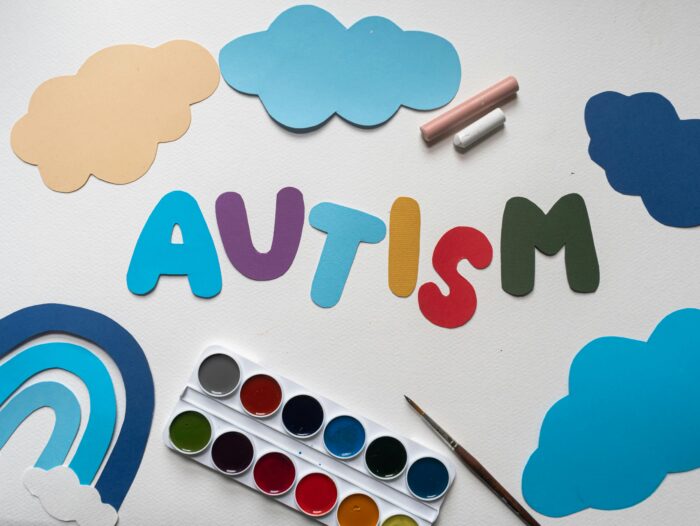
From time to time, stories pop up about individuals seemingly outgrowing their autism symptoms. Parents should know that autism is not a condition that will simply go away with time — but proper care and support can make all the difference in the lives of those on the spectrum.
Autism, Explained
Autism Spectrum Disorder (ASD) is a condition that directly affects how someone communicates, interacts with others, and sees the world in general. This spectrum entails several different types, such as Asperger’s Syndrome, Kanner’s Syndrome, and Childhood Disintegrative Disorder, among others.
Due to the nature of spectrum conditions, no two people with ASD are the same. Each person has their own set of likes and dislikes, as well as strengths and challenges.
But do kids grow out of autism as they age?
Addressing the Myth: Can Kids Grow Out of Autism?
No, autism doesn’t go away as someone gets older.
There is currently no known cure for autism. Some children, particularly those with high-functioning autism, may be able to effectively manage their symptoms over time with the right strategies and support.
This leads to what some call an “optimal outcome,” where the signs of autism might become less noticeable as a child grows. However, this doesn’t mean autism has disappeared.
These autism recovery signs may include:
- A noticeable decrease in repetitive behaviors
- Improved communication skills
- Better adaptability to change
Studies and guidelines, like those from the DSM-5 (Diagnostic and Statistical Manual of Mental Disorders), reinforce that autism is a lifelong condition. So when it appears that someone has grown out of autism, this could be due to an early misdiagnosis rather than a loss of ASD traits.
Overcoming Autism & Misdiagnoses Issues
Children as young as 18 months can be diagnosed with ASD, and it’s important to get a clear picture of their development and an accurate diagnosis. However, since many symptoms overlap and some outward signs are less obvious, ASD can be confused with conditions like ADHD, OCD, or anxiety. For example, autism’s intense focus on a hobby can look a lot like ADHD, the strong desire for consistency can resemble OCD rituals, and the social challenges in autism might be mistaken for anxiety.
In addition, getting the wrong diagnosis means a child could miss out on hours worth of helpful therapies. That’s why it’s so important for doctors and therapists to take their time, look at all the symptoms, and make sure kids get the right support from the start.
The Impact of Early Intervention and Therapy
For children with autism, early intervention is quite useful. If you begin providing appropriate support for your child with autism by the age of three, you are giving them an excellent opportunity to work on all necessary social and behavioral skills, even if they won’t be able to ulitmately outgrow autism.
At this age, their little brains are like sponges, ready to soak up new information and experiences. Here are some therapies that can benefit your child’s future:
- ABA Therapy (Applied Behavioral Analysis) — The ABA method gently guides children toward positive behaviors, helps them learn social cues, and improves their overall interactions.
- Occupational Therapy — This method teaches children practical daily living skills, such as eating, dressing, and handwriting.
- Sensory Integration Therapy — It helps children better manage sensitivities to sights, sounds, or textures.
- Speech Therapy — This therapy helps kids find their words, and teaches them to express their needs, thoughts, and feelings more clearly. This method benefits children across the whole spectrum.
- Floortime Therapy — This technique uses play to help children interact, share, and build relationships. It’s a fun and natural way for them to develop social skills.
In a Nutshell
While it’s true that some children may experience significant improvements in their symptoms and abilities over time, autism reversal is not possible. But with the right help and lots of love, they can do really well.
That’s why it’s important to accept everyone’s unique way of being, as well as to remain optimistic about future studies and advances that will provide better ways to support those with autism. Together, we can make a positive difference.
FAQs
Can a person with autism live a normal life?
Definitely. People with autism can enjoy rich, full lives. While outcomes depend on the severity of the individual’s condition and a large proportion of people with autism may not achieve complete independence, there is a wealth of support available to maximize their quality of life.
It’s all about finding and providing the right mix of support, opportunities, and understanding, while keeping their individual needs and strengths in mind.
Can autism improve with age?
Yes, many individuals with autism experience improvements with age (and proper therapies). Early intervention, personalized therapies, and ongoing support all play important roles in the development of skills and coping mechanisms.
Does autism get worse after age 3?
No, autism itself doesn’t get worse. But as kids grow, they face more social and educational expectations. These new challenges can make autism symptoms more noticeable.



